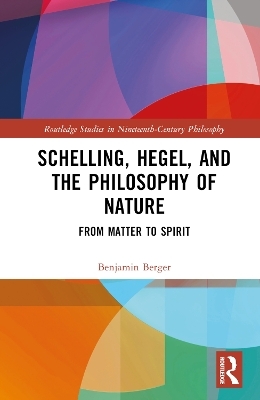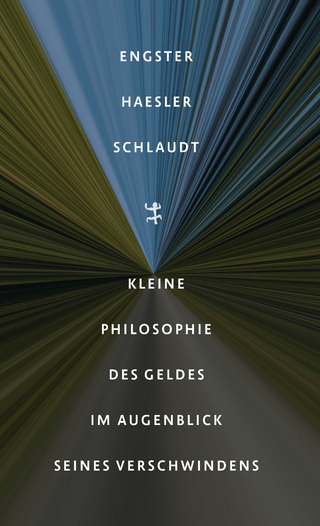
Schelling, Hegel, and the Philosophy of Nature
From Matter to Spirit
Seiten
2023
Routledge (Verlag)
978-0-367-44181-4 (ISBN)
Routledge (Verlag)
978-0-367-44181-4 (ISBN)
This book develops an original interpretation of the relationship between F.W.J. Schelling and G.W.F. Hegel. It argues that the difference between these philosophers must be understood in light of their shared commitment to the philosophy of nature and the idea that spirit, or humanity, emerges from the natural world.
This book develops an original interpretation of the relationship between F.W.J. Schelling and G.W.F. Hegel. It argues that the difference between these philosophers should be understood in light of their shared commitment to the philosophy of nature and the idea that spirit, or humanity, emerges from the natural world.
The author makes a case for the contemporary relevance of German idealist philosophy of nature by walking the reader through its major themes, motivations, and arguments. Along the way, Schelling and Hegel are shown to develop key insights about the structure of reality and the dependence of living things and human beings upon inorganic natural processes. In elucidating the details of Schelling’s and Hegel’s respective philosophies of nature, the book challenges some of our most basic assumptions about the scope of philosophical inquiry and the relationship between matter, life, and human existence.
Schelling, Hegel, and the Philosophy of Nature will appeal to scholars and advanced students working on German idealism, as well as those interested in contemporary philosophies of nature and the topic of emergence.
This book develops an original interpretation of the relationship between F.W.J. Schelling and G.W.F. Hegel. It argues that the difference between these philosophers should be understood in light of their shared commitment to the philosophy of nature and the idea that spirit, or humanity, emerges from the natural world.
The author makes a case for the contemporary relevance of German idealist philosophy of nature by walking the reader through its major themes, motivations, and arguments. Along the way, Schelling and Hegel are shown to develop key insights about the structure of reality and the dependence of living things and human beings upon inorganic natural processes. In elucidating the details of Schelling’s and Hegel’s respective philosophies of nature, the book challenges some of our most basic assumptions about the scope of philosophical inquiry and the relationship between matter, life, and human existence.
Schelling, Hegel, and the Philosophy of Nature will appeal to scholars and advanced students working on German idealism, as well as those interested in contemporary philosophies of nature and the topic of emergence.
Benjamin Berger is Visiting Assistant Professor and the current director of the philosophy program at the University of Hartford. He is the co-author of The Schelling–Eschenmayer Controversy, 1801 (2020) and co-editor of The Schelling Reader (2021).
Introduction Part 1: Schelling 1. Subjectivity in Nature 2. Dynamics, Physics, Organics 3. The Generation of Spirit Part 2: Hegel 4. Nature as Self-External Reason 5. Nature’s Logic 6. The Self-Formation of Matter 7. Life and the Liberation of Spirit Part 3: Conclusion 8. Logical Emergence and the History of Nature
| Erscheinungsdatum | 02.12.2023 |
|---|---|
| Reihe/Serie | Routledge Studies in Nineteenth-Century Philosophy |
| Zusatzinfo | 2 Line drawings, black and white; 2 Illustrations, black and white |
| Verlagsort | London |
| Sprache | englisch |
| Maße | 152 x 229 mm |
| Gewicht | 680 g |
| Themenwelt | Geisteswissenschaften ► Philosophie ► Metaphysik / Ontologie |
| ISBN-10 | 0-367-44181-0 / 0367441810 |
| ISBN-13 | 978-0-367-44181-4 / 9780367441814 |
| Zustand | Neuware |
| Haben Sie eine Frage zum Produkt? |
Mehr entdecken
aus dem Bereich
aus dem Bereich
Buch | Hardcover (2024)
Matthes & Seitz (Verlag)
28,00 €
Über konstruktivistisches Denken in der Theologie
Buch | Softcover (2024)
Verlag Herder
58,00 €


